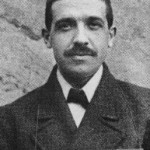Client Fraud and the Lawyer
 As the disaster in the financial markets continues to unfold, greed and avarice – the usual suspects – are being overshadowed by pervasive fraud as a prime mover. We have, of course, the infamous Bernie Madoff and now the “mini-Madoffs” upon whom we can heap large helpings of blame, but deceit, misrepresentations, and fraud seemingly resonate throughout the markets, as illustrated by the subprime scandal, the mortgage mess, and the flood of worthless consumer debt. And what was the role of lawyers in all this? Financial transactions of this sort inevitably involve lawyers at some stage. Investigations and lawsuits may soon give us a clearer picture of the role lawyers may have played in exacerbating the nightmare, but the question for today is whether lawyers could have, or should have, acted to prevent any of this. And my focus is not Sarbanes-Oxley or securities regulations, but on the fundamentals of lawyers’ professional responsibility.
As the disaster in the financial markets continues to unfold, greed and avarice – the usual suspects – are being overshadowed by pervasive fraud as a prime mover. We have, of course, the infamous Bernie Madoff and now the “mini-Madoffs” upon whom we can heap large helpings of blame, but deceit, misrepresentations, and fraud seemingly resonate throughout the markets, as illustrated by the subprime scandal, the mortgage mess, and the flood of worthless consumer debt. And what was the role of lawyers in all this? Financial transactions of this sort inevitably involve lawyers at some stage. Investigations and lawsuits may soon give us a clearer picture of the role lawyers may have played in exacerbating the nightmare, but the question for today is whether lawyers could have, or should have, acted to prevent any of this. And my focus is not Sarbanes-Oxley or securities regulations, but on the fundamentals of lawyers’ professional responsibility.
Lawyers are not permitted to “assist” or “further” crimes or frauds committed by their clients. To do so – provided anyone finds out – eviscerates the venerable lawyer-client privilege and exposes both lawyer and client to civil and criminal remedies. This is comfortably familiar and uncontroversial. But what of the lawyer who is aware of a client’s fraud but who arguably has done nothing to assist or further it? Assume further that the fraud is on-going and not a past act. What is the lawyer’s duty or professional responsibility, especially considering that lawyers are enjoined not to disclose client confidences or privileged communications without client consent (and the reality is that few clients will approve of their lawyer’s whistle-blowing)?


